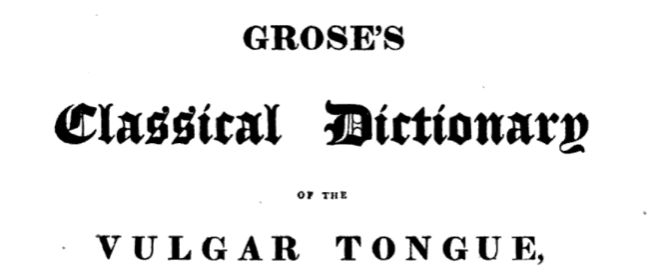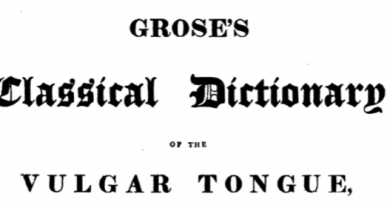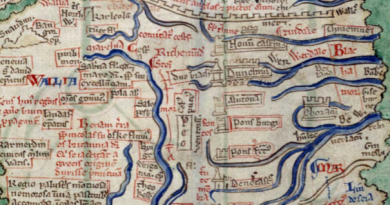Dictionary of the Vulgar Tongue – Day Seventy-Six
The Dictionary of the Vulgar Tongue was first published at the end of the eighteenth century, and given that the Coronavirus crisis is giving too much time to read books, I thought I’d pick a daily word from it until I got bored…..
Chuck Farthing
The dictionary defines this as “a parish clerk” and I have no idea how that’s supposed to have come about. ‘Chuck farthing’ is best known as a game that essentially involves getting a farthing coin into a hole. And, this was a big game, which one MP complained in 1839 was debated for three hours in the House of Commons, but that was required as it became quite a common gambling option and legislation was considered. In 1884, the Dean of Manchester Cathedral said that “it was not right to stop a boy playing chuck farthing”, a situation that had arisen because there remained fears of gambling.
Wikipedia has a nineteenth-century description of how the game, which existed since at least the seventeenth century, worked:
“Each competitor starts with the same number of coins. They pitch their coins one at a time from a mark at a given distance towards a hole in the ground. The competitors are ranked based on how close they come to the hole. The competitor closest to the hole receives all of the coins and proceeds to a second mark nearer to the hole, from which he throws all of the coins at once towards the hole. All of the coins that remain in the hole are his to keep. The remainder of the coins are given to the next closest competitor, and the process is repeated until no coins remain.”
It’s clear to see how gambling became a problem here, especially when the game was played for hours in pubs.
But back to the parish clerk definition of the term, this goes back to at least 1655 when ‘A Satyr Against Hypocrites’ was written by John Phillips. And, perhaps the hypocrites bit is important, maybe parish clerks played the game regardless of the betting issues related to it. But, who knows….
Judging from this, the game went out of fashion long before the farthing coin ceased to be used at the end of 1960.





